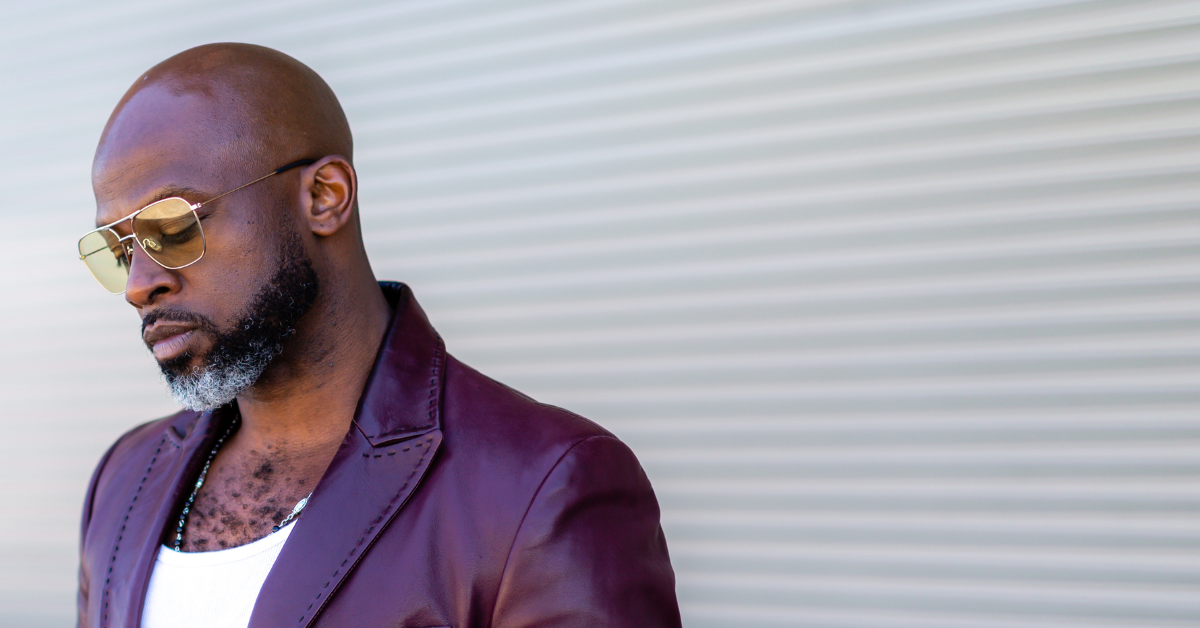A Conversation with the Cast & Crew of Bernarda’s Daughters co-produced by the National Black Theatre and The New Group
Bernarda’s Daughters is co-produced by the National Black Theatre and The New Group. It’s written by Diane Exavier and directed by Dominique Rider. This co-production marks the world premiere of Bernarda’s Daughters, which debuted as an audio play from The New Group Off Stage with Audible Originals in March 2022. Previews begin May 2 in advance of an Official Opening Night on Tuesday, May 23. A limited Off-Broadway engagement is slated through June 4 at The Pershing Square Signature Center (The Romulus Linney Courtyard Theatre, 480 West 42nd Street).
Amid gentrifying construction, street protests and a sweltering summer in Flatbush, the five Abellard sisters take refuge in their family home. Simmering in the losses of their father and their neighborhood, they clash over how to contend with the legacy of their Haitian parents in a city that is no longer theirs.
Inspired by Lorca’s The House of Bernarda Alba but with a breathtaking immediacy, playwright Diane Exavier brings to life a powerful ensemble of women to create this sensual and entrancing portrait of a family at a crossroads.
The cast includes Pascale Armand, Alana Raquel Bowers, Kristin Dodson, Malika Samuel, Taji Senior, and Tamara Tunie.

Conversation with Diane Exavier – Playwright
Cox: Diane When it comes to writing, you love to bring in what you call the four L’s (love, loss, legacy, and land). I know they tie into your writing and even this current production; can you expand on them for me?
Exavier: I write a lot about grief. I think it’s something that, as communities and as societies, we don’t really talk about that much. We don’t really talk about grief in the sense of moving through it or with it. Grief isn’t a linear thing. It comes back on you in ways that you can never really assume. This is what leads to the L of loss.
When it comes to legacy, it’s about family and what it means to work through your own lineage. It’s a complicated thing because you might have feelings about family that aren’t so great or positive. It’s tricky when it comes to how we navigate family and how hard it really is for us to have those tough conversations.
Love is another complicated thing. When I write about love, I write about the wonder of what it looks like in the world that we live in currently. I zero in on this and what love looks like on different levels, like in this play from Black/Carribean families and Black/Carribean sisterhood.
Land is something more obvious because we are living in a post-colonial world. I think about how global powers have affected countries like Haiti and its relationship with the US. This is something really important to my personal politics, but it’s like the rest of the L’s are all part of my daily life.
Cox: This play touches on all levels of the human experience: mental, physical, spiritual, and emotional. How were you able to bring all these elements and layers together in a play that a general audience would understand?
Exavier: I think for me, it really came down to poetry. In another version of my life, I’m a poet. And I’m able to bring that poetry to the pages of the play and the stage. Poetry isn’t all abstract; rather, it’s actually very specific. I was able to use poetry to bring these things together because poetry is about getting to the meat of things as soon as possible, and you are using the language in a specific order to make it happen. So, I was able to bring all these different elements together, like different ingredients in a gumbo, by working through the text poetically. This allowed me to focus on how to use the text to create specific connotations that serve as threads and stitches to hold everything together.
Cox: When it comes to this play and the dynamics of the sisters, what is something I will take away as a viewer?
Exavier: That conflict isn’t always a bad thing and that these women get to be different. You know, black people get to be different because our blackness isn’t monolithic. You will see that there is a way in which the African diaspora allows us to all have different realities, truths, flavors, and textures. We don’t have to feel that we have to fit into the same narrative or picture frame of life.

Conversation with Dominique Rider, Director
Cox: As the director, what was your method to ensure that your vision aligned with Diane’s when it came to bringing this to life?
Rider: You know, the first conversation Diane and I ever had was when we were sitting in a donut shop. We were talking about world problems and asked what would happen if America didn’t’ exist. I say that because we have this collaborative nature between us when it comes to both our visions. So with each iteration of the play, we would communicate what the best possible approach to this is and what’s possible for this to happen. We worked together to try and figure things out so we could ultimately expand things for the performances. We wanted to make sure we shared the same vision.
Cox: As the director of this play, what is something you want the audience to take away?
Rider: You know, a moment has already happened. One of the audience members came up to me and said that show really meant a lot to her, and she pointed out a specific moment in it. She referenced a part in the play where one of the female characters expresses her sexual desires. It’s funny because most of the audience laughed through that part. I think it’s because it was uncomfortable for them to hear about a woman being upfront about her sexual desires. But to have someone come up to me after the play to say they never thought about it like that and that they might desire the same thing
This play helps them reorient themselves to their desires and gives them a name.

Conversation with Tamara Tunie, Actress
Cox: Tamara Tunie, as a seasoned actress, what was it about this play that you knew you needed to be part of it?
Tunie: Well, when I read the play, it just resonated with me in a way. There was something about the language of it all—not just how things were being said, but what exactly was being said. There are conversations in this play that aren’t normally had in everyday life. You just don’t hear them, well, out loud at least. And so, it all stuck with me after I read it.
And I just really became interested in the character that I play, Florence Delva. I love the fact that she has the ability to live in Flatbush and still be connected to her culture, spiritual self, and humanity.
It was also fun working on my Haitian accent, which was challenging at first.
Cox: I want to piggyback off your affinity for Florence. Does she remind you of other black women in your life or even you in some way?
Tunie: I think there is a Florence in everyone’s life. She is a woman who is my mother and who taught me how to garden, sew, and skip rocks across the creek. She has that intense wisdom and spiritual connection with the universe and God. It’s funny because I didn’t really think about it until this very moment.
Cox: As a black woman from a different culture, what has this play taught you about the human experience regardless of race and ethnicity?
Tunie: At the end of the day, we all come from the same source of life. And with this character who is Afro-Caribbean, I think it really showed me how that Afro part brings instant recognition wherever we go as Black people in connection with other Black people we experience on any continent from Europe to Africa to Latin America.

The Collective Conversation
Cox: What did this play mean for you all individually as a writer, director, and actress?
Exavier: This play really was about my home. It’s about Flatbush, a place that you really want to return to and call home again. It’s not in the most exciting part of town. You know it’s not where people go for bars or restaurants. I feel sort of exposed in a way because my sisters were in the audience on opening day. I know they noticed the familiar elements from our childhood in the play, such as the music and even the stage design aspects.
Rider: I first encountered this play when I moved to Flatbush a little over five years ago. I was experiencing my own grief and loneliness, which we normally experience when we move away from home. So, for me, this play really represents a moment and time in my life. But through all this, it has shown me that there is space in your life for discovery and exploration.
Tunie: For me, this play really brings up the question of what life is really about and what’s important to you. I think the neighborhood and people in this play express themselves and bring feelings to the service that we can all identify with and connect with. We’ve gotten such a great response from the audience, and it’s a very diverse audience. So being able to get on that stage and build a connection between the audience and the creatives is amazing.
To learn more about Bernarda’s Daugther and the National Black Theatre visit www.nationalblacktheatre.org/bernardas-daughters
Photography Credit: Monique Carboni






